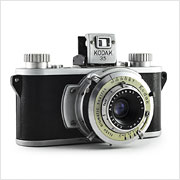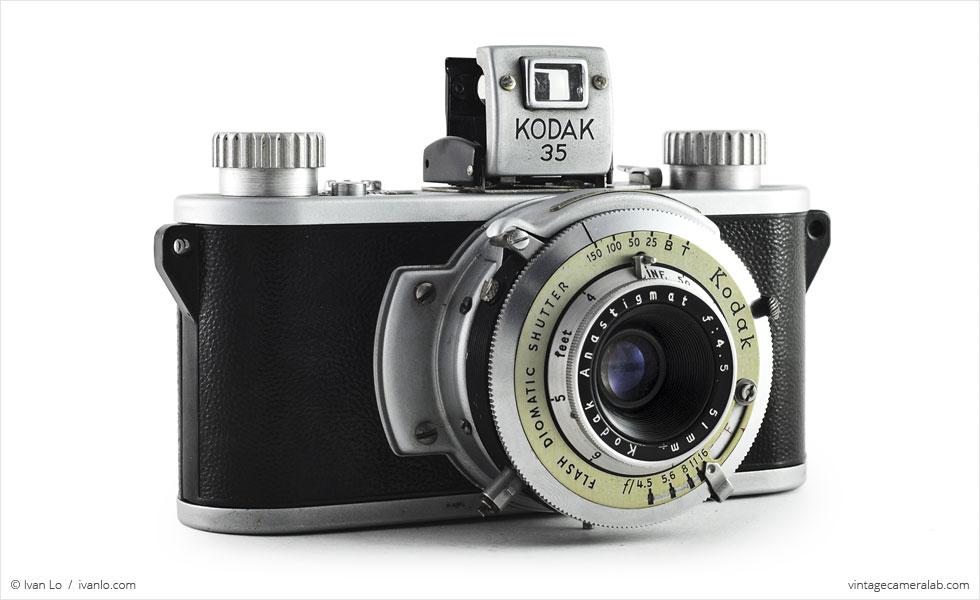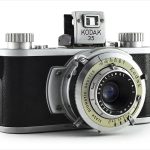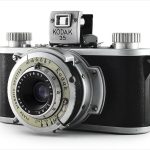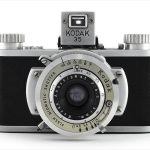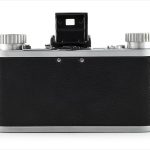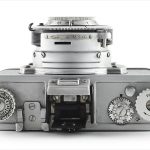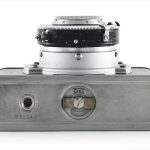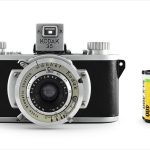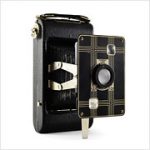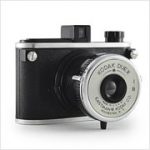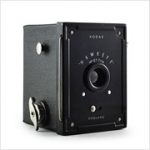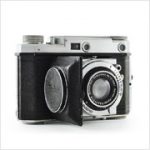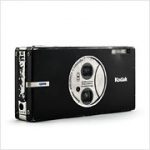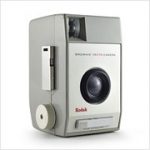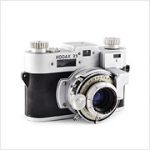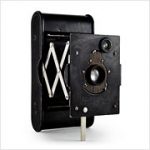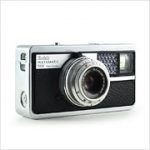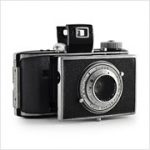Kodak 35 Specifications
| Manufacturer: | Eastman Kodak Company |
| Origin: | USA |
| Made in: | Rochester, NY, USA |
| Introduced: | 1938 |
| Type: | Viewfinder |
| Format: | 135 Film |
| Dimensions: | 13.1 x 7 x 7.1 cm |
| 13.1 x 8.5 x 7.1 cm (viewfinder open) |
Kodak 35 Review
The Kodak 35 was the first 35mm camera manufactured by Kodak in the United States. The Kodak Retina series—earlier 35mm models—were being made in Germany starting in 1934 but as war loomed on the horizon, Kodak decided to develop a 35mm camera that wouldn’t have to rely on imported components. The other major motivation for Kodak to make the 35 was to compete directly with the Argus A and Argus C series of cameras, a battle it would eventually lose.
This 35 features a 51mm f/4.5 Kodak Anastigmat lens mated to a “flash diomatic” shutter. Focusing the lens is achieved by rotating the ring immediately surrounding the front element. Shutter speeds are chosen by the next concentric ring while aperture is selected by shifting a tab at five o’clock. A self timer is located at two o’clock on the lens barrel while a flash sync post can be found at 7:30. The unassuming shutter button is at 11.
The Kodak 35’s top plate is dominated by two knobs on either side with a frame counter and flip-up viewfinder in the middle. However, there are many variants of the Kodak 35 so I’m just going to talk about my specific example which was made circa 1946. My example features unpainted metal knobs with straight line knurling. The rewinding knob has a film type indicator printed on the top while the winding knob shows “wind” and a directional arrow. Between the rewind knob and the unpainted viewfinder is a cold shoe and the viewfinder has a tiny distance wheel that elevates its rear element in an attempt to simulate focus. The bottom plate features a latch that keeps the back of the camera attached, a tripod socket, and a serial number.
I found this Kodak 35 at the estate sale of Kirk Kekatos (founding member and former president of the Chicago Photographic Collectors Society) and purchased it along with other cameras like the LaBelle Pal, Ansco Memo, Vest Pocket Kodak, Univex Model AF-4, Graflex Graphic 35, and Bell & Howell Electric Eye 127. On the back wall of his basement was a shelf packed with dozens upon dozens of Kodak 35 variants so I picked the cleanest example I could and ended up with this gem.
Find your very own Kodak 35 on eBay.
McKeown, James M. and Joan C. McKeown’s Price Guide to Antique and Classic Cameras, 2001-2002. (Grantsburg, WI, USA: Centennial Photo Service, 2001), p 353.
“Kodak 35,” Wikipedia, https://en.wikipedia.org/wiki/Kodak_35
